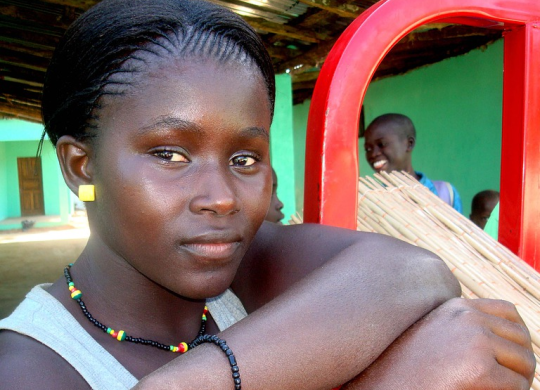Higher education in Equatorial Guinea: where you can get it

The Republic of Equatorial Guinea is a separate African state, washed by the waters of the Gulf of Guinea and the Atlantic Ocean. The education system of this country has come a long way toward achieving the goal of developing quality education. A number of problems that had a great impact on the educational system of Equatorial Guinea are:
1. Lack of teachers in educational institutions.
2. Insufficient level of highly skilled workers in the field of pedagogy.
3. Lack of sufficient amount of necessary literature in libraries.
4. Not all residents have a complete secondary education, as a result, they cannot help their children in learning.
But, over the past 10 years, great strides have been made in the educational system of Equatorial Guinea. Currently, the program for the development of education in Equatorial Guinea (PRODEGE), funded by government agencies, is aimed at improving the quality of education. First of all, the program improved the skills of teachers and helped to increase knowledge in the field of communication, mathematics, and natural and social sciences. In addition, the main goal of PRODEGE is to improve the skills of specialists in the field of pedagogy, the development, and adaptation of modern teaching methods, taking into account the needs of students.
Studying in Equatorial Guinea is free and compulsory from 6 to 14 years of age. Primary education lasts five years. This is followed by four years of secondary education in the first stage and three subsequent years in the second stage.
Higher education in Equatorial Guinea: where to get it
In Equatorial Guinea, funding for higher education is more important than for primary and secondary education. To a large extent, the Spanish National University of Distance Education helps to do this. In Equatorial Guinea, higher education is available at universities, colleges, and international schools. We note the fact that a fairly large number of foreign students wish to study at the best universities in this country, these are:
1. The National University of Equatorial Guinea is the largest public educational institution. The most demanded faculties are here:
• arts and social sciences;
• ecology;
• medicine;
• faculty of Humanities and Religion.
2. Enrique Nwo Okenwe National College. It has 2 branches located in the cities of Bata and Malabo.
An ideal solution for immigrant students can also be international schools that have received recognized accreditation, such as the International Baccalaureate IB (International Baccalaureate). Such institutions work according to curriculum standards from the US, UK, or France. Teaching may be in any language but is usually in English or French.
The city of Malabo has two leading schools:
1. International school Gloryland, working on the British program.
2. Malabo French Language School, offers a curriculum supported by the French national education system.
How to open a student visa for Equatorial Guinea: a quick guide
The following types of visas are available for travel to Equatorial Guinea:
· Tourist visa.
· Working visa for a short period.
· Visa for the purpose of medical treatment.
· Student visa.
To study at one of these universities, international students must obtain a student visa for Equatorial Guinea, depending on their country of origin. A study visa allows you to temporarily immigrate to Equatorial Guinea not only to take a course of study in the country but also to live and work (on a limited basis) here until the educational course is completed.
Documents and requirements for a student visa:
1. Original and photocopy of the first page of a valid foreign passport, where the data is indicated.
2. Photocopy of the passport page with the last entry stamp to Equatorial Guinea.
3. If there was a previous visa to Equatorial Guinea, a copy of this visa.
4. Original letter of admission to a full-time course at an educational institution.
5. Receipt of full payment for the course.
6. A document confirming the availability of funds for living while studying, such as a bank statement or sponsorship letter.
7. Certificate of international health insurance policy for the entire period of study in the country. You can buy insurance with one click on the website. The service is offered in several categories, including insurance with covid coverage.
The above information is recommended to be used as a guide only. It is worth noting: that the Consulate of Equatorial Guinea has the right to require additional documents. For more information, please contact us for legal advice (Education).
Recommended articles
3 min
Blog
5 min
Education
4 min
Residence permit
5 min
Work
All materials and articles are owned by VisitWorld.Today and are protected by international intellectual property regulations. When using materials, approval from VisitWorld.Today is required.
